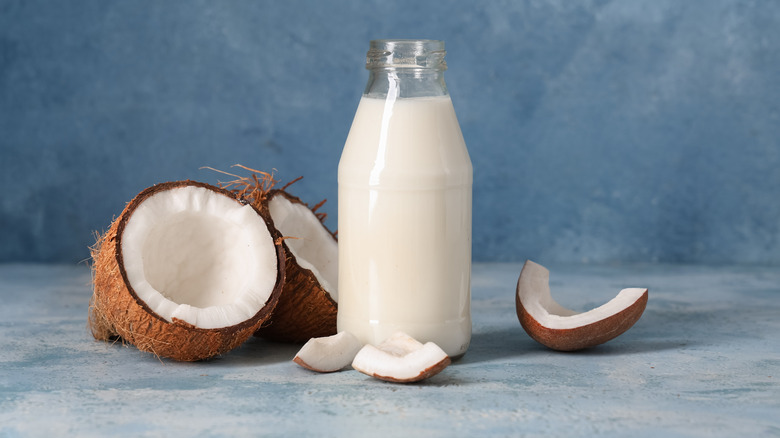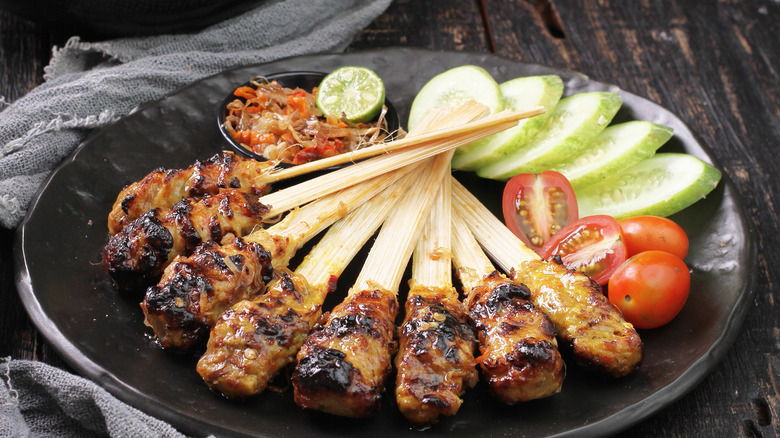How To Use Coconut Milk For A Tasty Marinade
Marinades play an essential role in cooking. They're great for tenderizing meats, helping to break down tough proteins for a moist, juicy finished product. Marination also has the potential to add major flavor, and one ingredient that can seriously deliver on that front is coconut milk.
If you've used this ingredient for any reason, from lightening up your coffee to adding flair to your favorite baked goods, you're already familiar with its delightful tropical flavor profile. In the context of a marinade, it also fills the role of a fat (similar to oils or yogurt), which performs a number of functions, from sealing in moisture to balancing acidity, and helping to infuse fat-soluble flavors into your food. This tasty twist will also add a creaminess to your choice of protein like chicken, pork, or beef, but you can use it for veggie options like tofu, too — or even apply to veggies themselves.
You can easily work this ingredient into the basic framework for a homemade marinade in place of (or in conjunction with) another fat. Just be aware that there's a difference between canned coconut milk and boxed coconut milk, and in this case, it helps to go for the full-fat kind.
Customizing a coconut milk marinade
Making a marinade from scratch means having the chance to customize, too. Coconut goes well with so many other craveable flavors, from citrus like lime to aromatics like garlic and ginger, spices like curry powder and paprika, and herbs like coriander, basil, and cilantro. Most marinades call for a sugar component too, and coconut is friendly with brown sugar, honey, and even maple syrup. It also invites spicy elements like cayenne or chile powder if you're craving a kick.
You can try out a crispy coconut baked chicken breast recipe that doubles down on this tropical fruit flavor, also using coconut and crushed almonds as a crust. And while it's delicious for baked proteins, this marinade is also perfect for grilling, searing, and broiling, as the sugar in coconut milk will promote browning and caramelization. An added bonus is that you can also use this flavor-packed liquid as a sauce for your finished dish (just be sure to set aside a portion so you don't contend with cross-contamination).
If you don't use all of your coconut milk for this purpose, don't toss the leftover liquid — you can freeze it for later or even use it to poach some coconut milk-marinated fish. Once you've made this ingredient a part of your marinating process, you will be very glad to have it on hand.

